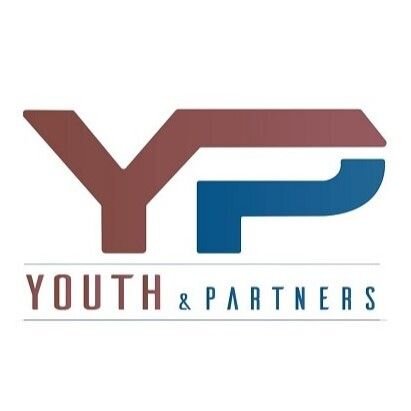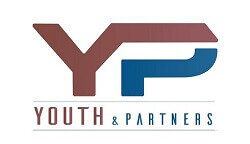Best Native People Lawyers in Vinh Phuc
Share your needs with us, get contacted by law firms.
Free. Takes 2 min.
List of the best lawyers in Vinh Phuc, Vietnam
About Native People Law in Vinh Phuc, Vietnam
Vinh Phuc is a province located in northern Vietnam, home to diverse communities, including various ethnic minority groups often referred to as native or indigenous peoples. The Vietnamese government recognizes 54 official ethnic groups, several of which, such as the Dao, Tay, and San Diu, reside in Vinh Phuc. Laws concerning native people are generally established at the national level and implemented locally with the goal of promoting equality, preserving culture, and ensuring fair access to social services and resources. These laws cover areas like land use rights, cultural preservation, language education, and participation in local governance.
Why You May Need a Lawyer
Consulting with a lawyer can be crucial for native people in Vinh Phuc in various situations. Common issues that may require legal help include:
- Disputes over land ownership or land use, especially when traditional lands are affected by development projects.
- Seeking official recognition of traditional customs or collective land use practices.
- Concerns regarding cultural heritage preservation or violation of cultural property.
- Complications accessing public services, such as healthcare, education, or social support programs designed for ethnic minorities.
- Unfair treatment or discrimination in employment, business, or social settings.
- Navigating government programs for ethnic minorities, which sometimes involve complex administrative procedures.
- Issues related to family law, such as marriage and inheritance, especially where customary law intersects with national law.
A lawyer experienced in native people law can help you understand your rights, represent your interests in negotiations or court, and guide you through relevant government procedures.
Local Laws Overview
Vietnamese law provides special provisions for native or ethnic minority people both nationwide and within Vinh Phuc. The most important legal framework comes from the Constitution, the Law on Ethnic Minorities, and specific government decrees and policies. Key aspects include:
- Land Use Rights: Native people often have collective or long-term use rights over traditional lands. Disputes or government land acquisition projects must comply with legal procedures, including compensation and consultation.
- Education and Language: Children from native communities are entitled to Mother Tongue-based education and support for learning in their own language alongside Vietnamese.
- Cultural Protection: Laws promote preservation and respect for the intangible and tangible cultural heritage of native people, including festivals, rituals, and traditional knowledge.
- Development Policies: Vinh Phuc, alongside national authorities, implements poverty reduction, infrastructure, and social support programs aimed at ethnic minorities.
- Participation in Local Government: Certain laws encourage representation of ethnic minorities in local People's Councils and other bodies, ensuring their voices are heard in decision-making.
- Non-Discrimination: Discrimination based on ethnicity is strictly forbidden by law, with avenues for legal redress if such acts occur.
Frequently Asked Questions
What ethnic groups are considered native people in Vinh Phuc?
The main native or ethnic minority groups in Vinh Phuc include the Dao, San Diu, and Tay communities, among others officially recognized by the Vietnamese government.
Do native people in Vinh Phuc have special land rights?
Yes, native people often possess long-term or collective land use rights, especially over traditional or communal lands. These rights are protected under Vietnamese land law.
How are cultural rights of native people protected?
Cultural rights are protected by both the Constitution and specialized laws, ensuring respect and preservation of native languages, festivals, rituals, and ancestral heritage.
Can native people be involved in local government decision-making?
Yes, there are policies and quotas that support the participation of ethnic minorities in local People's Councils and other governmental bodies.
What government assistance is available for native people?
Assistance includes targeted poverty reduction programs, educational scholarships, healthcare support, and infrastructure development focused on areas with high ethnic minority populations.
Is discrimination against native people illegal?
Yes, all forms of ethnic discrimination are banned by Vietnamese law, and there are legal processes for seeking redress if discrimination occurs.
Can native people use their traditional language in schools?
Mother Tongue education is encouraged for native children, especially in early grades, alongside the standard Vietnamese curriculum.
What should I do if my land is being taken for a development project?
You have the right to fair notice, consultation, and compensation. Legal advice is recommended to ensure your rights are protected throughout the process.
Do customary practices have any legal standing?
Customary law is recognized in certain family and land matters, as long as it does not conflict with state laws. Legal recognition often requires registration or proof of tradition.
Who can I contact if my rights as a native person are violated?
You can seek legal redress through local People's Committees, ethnic affairs offices, or consult with a lawyer experienced in native people law.
Additional Resources
If you are seeking more information or support, the following organizations and governmental bodies can be helpful:
- Committee for Ethnic Minority Affairs (CEMA) - the main government agency overseeing issues related to ethnic minorities and native people in Vietnam
- Provincial Department for Ethnic Minority Affairs in Vinh Phuc - provides information and support for local ethnic minority communities
- Vietnam Bar Federation and Vinh Phuc Bar Association - where you can find qualified legal professionals
- Non-government organizations focused on ethnic minority rights and community development, active in northern Vietnam
These resources can provide legal information, guidance on government programs, and advocacy support.
Next Steps
If you believe you need legal assistance for an issue related to native people in Vinh Phuc, consider taking the following steps:
- Gather all relevant documents and information regarding your issue (for example, land titles, notification from authorities, correspondence).
- Consult with your local community representatives or ethnic affairs office to gain an initial understanding of your rights and available support.
- Contact a lawyer or legal aid organization with experience in native people and ethnic minority law for professional advice.
- Prepare your questions in advance to make the most of your consultation.
- If you are facing urgent action, such as land acquisition, act quickly to avoid missing important deadlines for appeals or negotiation.
Remember, seeking timely legal advice can help you better protect your rights and interests as a native person in Vinh Phuc, Vietnam.
Lawzana helps you find the best lawyers and law firms in Vinh Phuc through a curated and pre-screened list of qualified legal professionals. Our platform offers rankings and detailed profiles of attorneys and law firms, allowing you to compare based on practice areas, including Native People, experience, and client feedback.
Each profile includes a description of the firm's areas of practice, client reviews, team members and partners, year of establishment, spoken languages, office locations, contact information, social media presence, and any published articles or resources. Most firms on our platform speak English and are experienced in both local and international legal matters.
Get a quote from top-rated law firms in Vinh Phuc, Vietnam — quickly, securely, and without unnecessary hassle.
Disclaimer:
The information provided on this page is for general informational purposes only and does not constitute legal advice. While we strive to ensure the accuracy and relevance of the content, legal information may change over time, and interpretations of the law can vary. You should always consult with a qualified legal professional for advice specific to your situation.
We disclaim all liability for actions taken or not taken based on the content of this page. If you believe any information is incorrect or outdated, please contact us, and we will review and update it where appropriate.









